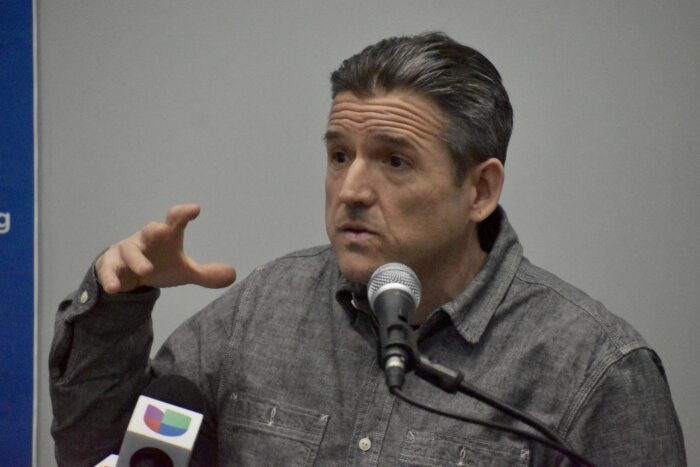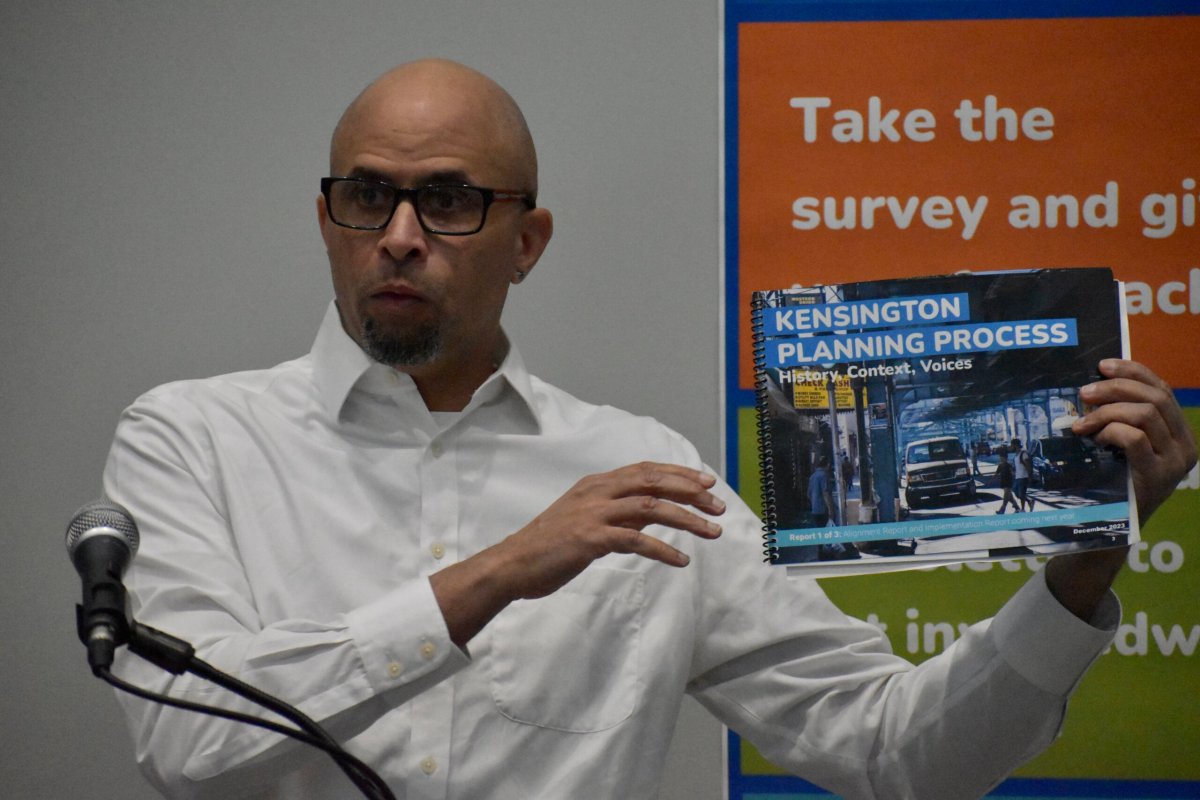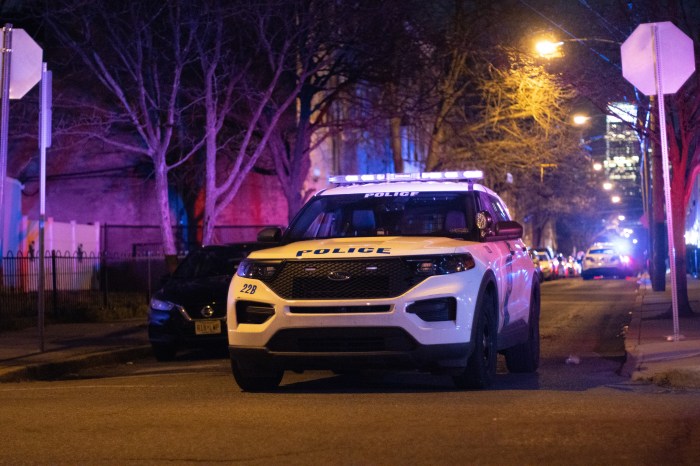Millions of dollars from a national legal settlement with opioid distributors is now being made available to Kensington residents for home repairs and eviction and foreclosure prevention, nonprofit leaders said Wednesday.
Kensington has long been the center of the city’s opioid crisis, with its open-air drug market making international headlines and becoming a significant topic of discussion during last year’s mayoral race.
Mayor Jim Kenney, in January 2023, allocated $7.5 million from Philadelphia’s settlement payout to the Kensington Planning Process, an effort involving extensive community engagement that is being facilitated by Impact Services and the New Kensington Development Corporation.
Representatives from the two neighborhood organizations said Wednesday that $2 million will be used for home repairs and another $1.5 million will go toward assisting people who are late on their rent or mortgage payments.
“We recognize that many of our residents are at severe risk of being displaced – not just displaced by the pressures of the opioid epidemic that we’re experiencing, but also by some of the potential progress that is coming,” Bill McKinney, NKCDC’s executive director, said, referring to gentrification.
Applications for grants of up to $5,000 for home repairs are going to be distributed in different quadrants of the greater Kensington area in the coming weeks. Projects can range from roof and window fixes to the installation of accessibility features. There are no income limitations, though participants must own and live in the home.
The plan is to rehabilitate 400 homes, said Casey O’Donnell, CEO and president of Impact Services.
Homeowners who are at least 60 days behind on their mortgage payments are eligible for $5,000 in financial assistance. Tenants at risk of eviction can receive up to $3,500. Those enrolled in the program must demonstrate a hardship, though, and like the repair program, there are no income qualifications, officials said. Each resident will be paired with a housing counselor.
Naiya Brown, a homeowner who benefitted from the aid, encouraged residents to reach out and ask for help if they need it. “The program has helped me in ways that you guys will have no understanding,” she said at a news conference.

Philadelphia is expected to receive about $200 million over 18 years from a settlement with Cardinal Health, McKesson, AmerisourceBergen and Johnson & Johnson stemming from a lawsuit alleging that the companies helped fuel the opioid epidemic.
Other Kensington-based investments using the money thus far include $2 million divided up between six schools and $100,000 each to parks and recreation centers in the neighborhood, city officials said.
Leaders from eight philanthropic organizations attended Wednesday’s event and pledged $2 million for the Kensington Planning Process, which began in response to the sudden closure of the Market-Frankford Line’s Somerset Station in 2021.
Since then, KPP has released reports on ways to bolster Kensington and Indiana avenues and urged elected officials to center community voices, rather than impose their own ideas about how to rectify the neighborhood’s ills. A report the coalition released in December outlined failed law enforcement crackdowns dating to 1998.
“There will have to be some form of policing as a part of where this is going,” McKinney said in an interview. “Should that lead the way? I don’t think so.”
Mayor Cherelle Parker incorporated shutting down Kensington’s drug market into her 100-day action plan and “public safety emergency” executive order, and enforcement in the neighborhood will be ramped up in the coming months, Police Commissioner Kevin Bethel told the Inquirer last week.
If there is any tension between the new administration, elected officials and neighborhood leaders about the right approach, it did not appear so Wednesday, as all three groups packed into a room at NKCDC’s headquarters, a block from Somerset Station.
City Councilmember Quetcy Lozada, whose district includes parts of Kensington, said her constituents want an increased police presence.
“Those who say anything different are because they may be involved in the activities that don’t welcome a police presence” she told Metro.
































